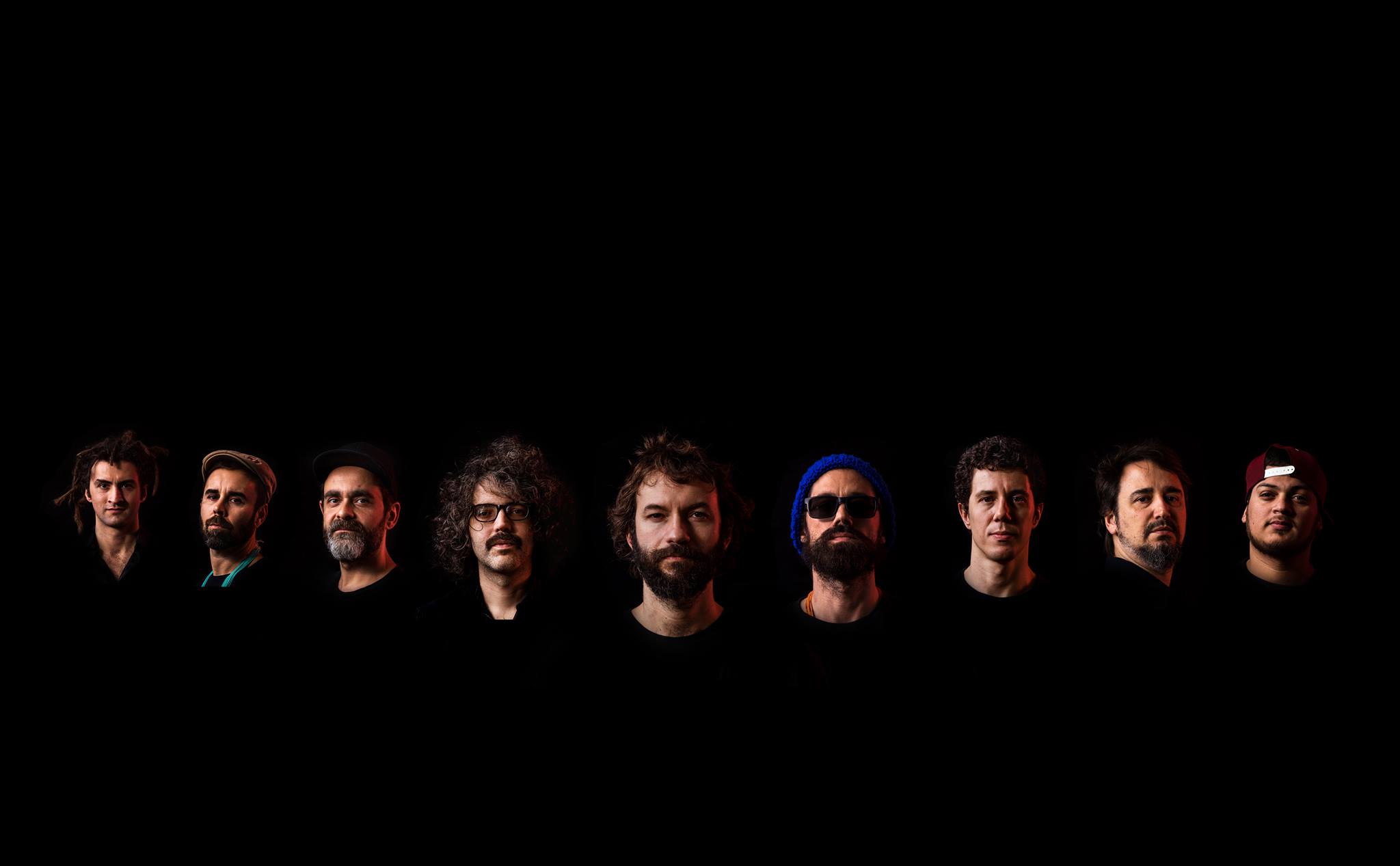Sao Paulo’s highly acclaimed 10-piece instrumental ensemble returns for their fourth album. Urban Afro-Brazilian grooves with horn-driven melody and huge dance floor inspiration. This is one of the most exciting musical experiences in South America. Nearly four centuries have passed since the first slave ships set sail with their cargoes. The connection between Brazil, West Africa and Brazil is still strong and deep. The culture of Brazil was created by slaves from Africa, with all its pains and joys. Those memories have been passed down through generations. Brazil is a melting pot of Africa, as evidenced by Quebra Cabeca (Puzzle), Bixiga70’s second album for Glitterbeat. This album features two continents dancing across the black Atlantic. Cuca Ferreira, a baritone sax player/flautist, says that “from the beginning, what has always been in common is African Brazilian music.” “Some of us are from candomble, the African-Caribbean religion, while others come from jazz, reggaet, dub and everything in between.” Quebra Cabeca has given that idea a new form. Ferreira points out that Bixiga 70’s music is “more complex.” We spent more time and worked harder on compositions than we did in the past. Every song is a complex mix of parts. They can feel like a journey. This change is largely due to the band’s constant touring over the past few years. Ferreira says, “We’ve been exposed so much.” “So many people we have played with have had an effect on us,” Ferreira says. Then we recorded and toured with Joao Doato. He is now over 80 and still plays the piano, one of the most iconic instruments in Brazilian music. They’ve taught us a lot and made us think about how we can improve our music. These new ideas have found their ways into this album.” Another result is the shining, new lyricism of melodies with the horns pushing even further to the forefront, parading around like a singer’s swagger. We want people to connect to our melodies. To take a line that a singer might use and to play it on the Horns. Sometimes instrumental music can be so great that the listener feels disconnected. Music is a celebration. It’s a way to bring joy and connect. We want them to come in. We want to draw them in. “What we added on top of that was essentially urban Sao Paulo Music. We have been greatly influenced by this city. It is a city that has a sense of urgency and always tries to catch up. It is expensive and the services are poor, as well as being a victim to so much violence and pollution. It’s our home, and was built through immigration. Bixiga is the place where people first come. It has always had that influx. It’s the story Sao Paulo in miniature.” Bixiga 70 is a reflection on the streets where people live. Their debut album was released a year later. The band performed their first show in October 2010. They are still the same 10-piece group eight years later, shaping and honing the music, and evolving towards the changes on Quebra Cabeca. We knew this record would be different. We recorded our previous three albums live in the studio. Because we are a more live band, the stage has been our home. We decided to use the studio this time to explore different arrangements and voicings. In early 2017, we began to compose. We took a year to complete the entire project, and then we started recording in May 2017. Gustavo Lenza (Ceu Marisa Monte) was our co-producer for the first time. Although he was a friend before we formed the band he has become a very important producer in Brazil in recent years.” While the live performance still exudes the excitement of Bixiga 70, the studio allows for more subtlety and shade. The rhythms are sinuously snaking through funk in a way that more resembles Ghana or Nigeria than Memphis and Muscle Shoals. While the horns play powerful harmonies, the rhythms are even more sinuous. It is music that creates connections, traces the past and sounds completely contemporary. Bixiga 70 will continue to be African the root and Brazil its vibrant, beautiful flower. http://www.bixiga70.com.br
